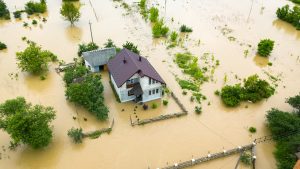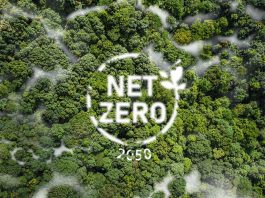A team led by Nanyang Technological University, Singapore, has announced the initial findings of a project to address the loss of cultures by measuring the impact of climate change on communities.
When measuring the impact of climate change on communities, the team analysed how to safeguard communities worldwide against cultural loss from climate change.
They applied an approach that combines scientific, humanities, and legal studies with exhibition-making, data visualisation, film, and photography.
Professor Ute Meta Bauer from NTU’s School of Art, Design and Media, said: “The project marks an important milestone in the emerging field of artistic research as a means of knowledge production.
“The topic of cultural loss and climate change is not entirely new, but understanding its full extent remains challenging.”
A paper detailing the study’s conclusions was published in Comparative Law Journal of the Pacific.
Studying local practices can help address the impact of climate change on communities
As part of the project, titled 3CL, the team found that recognising and including Indigenous customs in a country’s law, such as those of the Māori people of New Zealand, was necessary to study the impact of climate change on communities.
They noted that the legislation effectively protects the Māori culture and the environment, particularly around the Whanganui River and Te Urewera National Park.
Other fading local cultural practices, such as the rāhui in French Polynesia, are being integrated into contemporary legal frameworks in response to challenges brought on by the climate crisis.
The connection between climate and culture
Tackling climate change requires a multi-faced approach due to its connection to many different things, including culture.
As well as analysing the impact of climate change on communities, 3CL also highlights the importance of living heritage, in the form of local and indigenous knowledge, as a particularly vital source of resilience.
This was done through traditional food security strategies or water and land management techniques.
3CL co-lead researcher, Associate Professor Yun Sang-Ho, Director of the Remote Sensing Lab at NTU’s Earth Observatory of Singapore (EOS) and project collaborator Professor Nabil Ahmed from the Norwegian University of Science and Technology are collaborating to study the lingering impacts of Cyclone Pam, in collaboration with Vanuatu-based non-profit Further Arts.
Their collaboration places ground testimonies and cultural imprints left by the disaster, and satellite image maps of cyclone damage.
Can we safeguard these communities against cultural loss?
To protect these communities against cultural loss from climate change, the project applies an approach that combines scientific and artistic approaches.

“The primary goal of 3CL is to tackle this lack of clarity using innovative and interdisciplinary scientific and artistic approaches,” stated Bauer.
“While it may not provide all the answers to these issues, it serves as a bridge to enhance our understanding and acknowledgement of the impact of climate change on communities.
“In times of global uncertainty, it is crucial to seek common ground between the arts and the hard sciences that benefit both urban areas and remote territories.”
Dr Hervé Raimana Lallement-Moe, Associate Researcher at the University of French Polynesia and the University of Lyon, explained: “Culture and traditional knowledge can offer valuable insights and solutions for addressing the interrelated concerns of climate change, such as food security, disaster risk management, sustainable development, and social cohesion.
He concluded: “However, everywhere in the world, from the most developed states to local communities, cultural practices, traditions, and knowledge systems are disappearing.”









